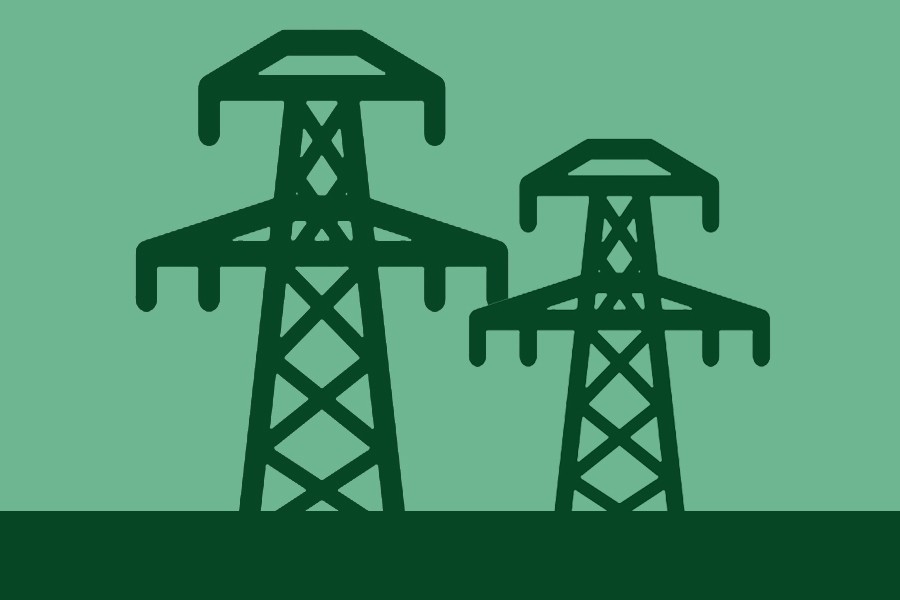Power grid installation project: Irregularities blamed for cost, time overrun

Published :
Updated :

An evaluation has found irregularities and mismanagement in a power grid installation project, resulting in its cost and time overrun, insiders said.
They said the state-run Power Grid Company of Bangladesh (PGCB) has failed to implement the Tk 25.16-billion National Power Transmission Network Development Project in time.
The PGCB had failed to maintain coordination with relevant other agencies, and made substantial delay in tendering process.
The Implementation Monitoring and Evaluation Division (IMED) conducted an evaluation on the project last year and came out certain findings.
The failure in timely project implementation forced the PGCB to extend the project execution deadline by two more years and cost by nearly 4.0 per cent to Tk 25.16 billion, the IMED evaluation report said.
Gross mismanagement was noticed in selecting the power transmission grid route, as it went through many establishments belonging to both government and private parties, it added.
The Executive Committee of the National Economic Council (ECNEC) approved the National Power Transmission Network Development Project in February 2013 at a cost of Tk 24.26 billion with a deadline for completing it by June 2017.
Due to the delay for the first time, the government extended the implementation deadline for one more year. But as it failed to meet that deadline, the government again revised the project timeframe by one more year up to December 2019, and hiked the cost by 4.0 per cent.
According to the project proposal, the PGCB was installing nearly 212 line-km of power grid for evacuating power, generated from the Shikolbaha 225 megawatts (MW) power plant in Chittagong, and upgrading power transmission systems in Chittagong, Shariatpur, Jashore, Rajshahi, Bogura, Mymensingh, and Barishal.
The IMED evaluation found that the PGCB did not discuss the project with other public agencies concerned for acquiring their lands for its work.
The agencies included the Bangladesh Railway, the Bangladesh Navy, the Gas Transmission Company Limited, the Karnaphuli EPZ, the KAFCO and the CUFL.
It had delayed land acquiring work for establishing power grid towers in some areas.
The implementing agency did not keep aside funds for providing compensation to the affected people, whose lands would be acquired for setting up towers, the evaluation team found.
The failure to coordinate with other agencies along with serious mismanagement by the PGCB had delayed the project work, which ultimately increased the cost and execution timeline.
The IMED report stated that the PGCB split the project works into 10 packages, and invited tenders separately.
The PGCB's Technical Evaluation Committee (TEC) took nearly five months for preparing technical reports for the packages one and two of the tenders, resulting in delay of the work.
The IMED team said the TEC spent nearly two years between December 2014 and October 2016 for completing all the technical evaluation reports for 10 packages.
The state-run national power transmission agency extended tender submission time on six occasions following requests from the aspirant bidders, it added.
Project evaluation officials said the PGCB had irregularities in selecting qualified bidders, regarding which the project's funding agency -- the Japan International Cooperation Agency (JICA) - and the consultant raised questions.
Starting from the invitation of tenders down to the finalisation of work orders, it took nearly one year and seven months, the IMED team further said.
Meanwhile, the delay in signing agreements with contractors and overall project work has pushed up the cost of its 10 packages by Tk 1.07 billion to Tk 18.02 billion in January 2018 from that of initial contract price of Tk 16.95 billion.
The PGCB also changed design for Shikolbaha 230/132kv grid sub-station in the middle of project tenure, when it failed to acquire its planned 10 acres of land for setting up the station.
For this, the cost for this sub-station installation work increased by Tk 590.22 million to Tk 2.10 billion from the original estimation of Tk 1.51 billion, the IMED evaluation team found.
When asked, the newly-appointed PGCB Managing Director (MD) Golam Kibria said he does not have enough information on the project.
"But it is reality that had we discussed with other people or agencies acquiring necessary lands prior to installing gridlines, the project implementation would have been difficult," he told the FE.
"First, we take our projects, and then we go for necessary land acquisitions," he added.
About the delay in tender processing, Mr Kibria said, "As the newly-appointed MD, I do not know exactly about the tendering process of this particular project. I will now check it with my officials concerned."
Regarding the irregularities in tender evaluation, the PGCB chief said the JICA is such a strict donor that it is not possible to get the project approved unless it is perfect.
According to the PGCB, it has completed 85 per cent of the total project work until last October.
kabirhumayan10@gmail.com


 For all latest news, follow The Financial Express Google News channel.
For all latest news, follow The Financial Express Google News channel.